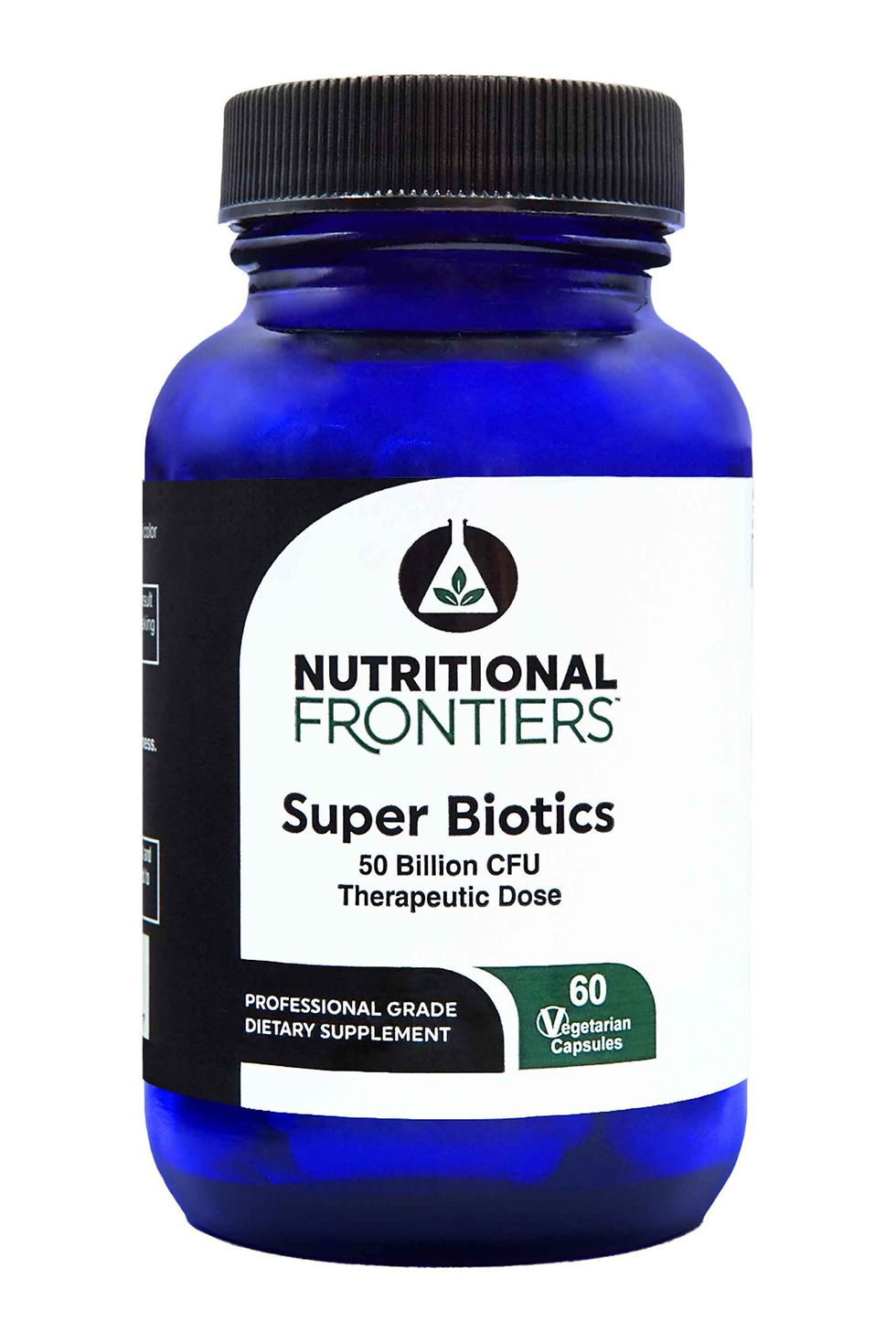Super Biotics contains 12 species of microorganisms from non-dairy sources. Because each strain has an affinity for a different part of the digestive tract, and a unique mechanism of action, a product that delivers multiple strains is preferable to single strain products.
Super Biotics is:
- Guaranteed to contain 50 billion CFUs of microorganisms in each vegetarian capsule.
- A non-dairy multi probiotic product to best mimic normal human flora.
Recommended For:
- Individuals who are lactose intolerant
- Normalizing digestion
- Supporting regularity
- Urologic support
- Immune system support
Super Biotics
Serving Size: 1 Capsule
Amount Per Serving
Lactobacillus acidophilus (La-14) 15 Billion CFU
Bifidobacterium lactis (Bl-04) 15 Billion CFU
Lactobacillus rhamnosus (Lr-32) 4 Billion CFU
Bifidobacterium infantis (Bi-26) 1 Billion CFU
Lactobacillus bulgaricus (Lb-87) 1 Billion CFU
Bifidobacterium longum (Bl-05) 1 Billion CFU
Lactobacillus salivarius (Ls-33) 4 Billion CFU
Bifidobacterium lactis (Bi-07) 2 Billion CFU
Lactobacillus casei (Lc-11) 2 Billion CFU
Streptococcus thermophilus (St-21) 2 Billion CFU
Lactobacillus plantarum (Lp-115) 2 Billion CFU
Lactobacillus paracasei (Lpc-37) 1 Billion CFUOther Ingredients: Microcrystalline Cellulose, Vegetable Capsule (HPMC, Water), Vegetable Stearate, Silicon Dioxide.
Suggested Use: As a dietary supplement, take 1 capsule once or twice daily, or as directed by your healthcare practitioner.
Warning: If you are pregnant or nursing, consult your health care practitioner before taking this product.
About the Formula
Lactobacilli (L. acidophilus, L. rhamnosus, L. casei, L. salivarius, L. Plantarum, L. Paracasei) are lactic acid-producing bacteria found in the human intestines. Many strains of bacteria from the Lactobacillus family have been shown to support bowel movement regularity, urogenital & vaginal health, production of the lactase enzymes and protection of the gut lining from unwanted materials.L. salivarius is a probiotic strain that has been shown to survive low pH conditions. It has also been shown to support immune system function by modulating certain cytokines (IL-10 and IL-12). In vitro studies have shown that L. Salivarius strongly adheres to human epithelia cell lines. This interaction with the mucosa demonstrates its support of the intestinal immune system.
Bifidobacteria (B. lactis, B. longum, B. infantis) are located in the colon and produce lactic and acetic acids, making the gut an inhospitable environment for unwanted microorganisms. (2, 3). Bifidobacteria (and other species) have been shown to promote bowel movement regularity.
Streptococcus thermophilus is also a lactic acid producer, which lines the gut wall to protect the gut microbiome. One animal study even showed that Streptococcus thermophilus helped alleviate allergic response and reduce airway inflammation in antibiotic-treated mice
